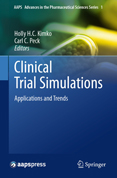搜索结果: 1-6 共查到“药学 Simulations”相关记录6条 . 查询时间(0.065 秒)
Use of Simulations to Improve Pharmacy Students’ Knowledge, Skills, and Attitudes About Medication Errors and Patient Safety
Use Simulations Improve Pharmacy Students
2018/8/28
Objective. To design and evaluate the use of simulations in preparing students to identify and reduce medication errors and promote patient safety.
Methods. Third-year pharmacy students used methods ...
Incorporating Standardized Colleague Simulations in a Clinical Assessment Course and Evaluating the Impact on Interprofessional Communication
interprofessional standardized colleague communication SBAR simulation
2015/4/17
Objective. To determine the impact of incorporating standardized colleague simulations on pharmacy students’ confidence and interprofessional communication skills.
Design. Four simulations using stan...
“Brown Bag” Simulations to Teach Drug Utilization Review
drug utilization review pharmacy skills laboratory
2014/7/3
Objective. To teach drug utilization review (DUR) skills to pharmacy students and assess their abilities and confidence before and after training.
Design. Profile reviews and online and live drug-uti...

《Clinical Trial Simulations - Applications and Trends》(图)
Clinical Trial Simulations - Applications and Trends Holly H.C. Kimko Carl C. Peck
2010/12/9
This edition presents a review of the principles and progress surrounding clinical trial simulations (CTS), along with case studies illustrating CTS in various therapeutic and application areas. In ad...
Pharmacokinetic Simulations Using Cellular Automata in a Pharmacokinetics Course
Pharmacokinetic Simulations Cellular Automata Pharmacokinetics Course
1999/3/14
Cellular automata are systems composed of two-dimensional cell arrays which change according to specific, pre-determined rules. For this reason, cellular automata were used to illustrate and simulate ...
Microcomputer-Based Programs for Pharmacokinetic Simulations
Microcomputer-Based Programs Pharmacokinetic Simulations
1995/3/10
A computer software package has been developed to simulate drug concentration-time profiles based on differential equations that describe 1, 2 and 3 compartment body models (CBM) with linear or nonlin...

